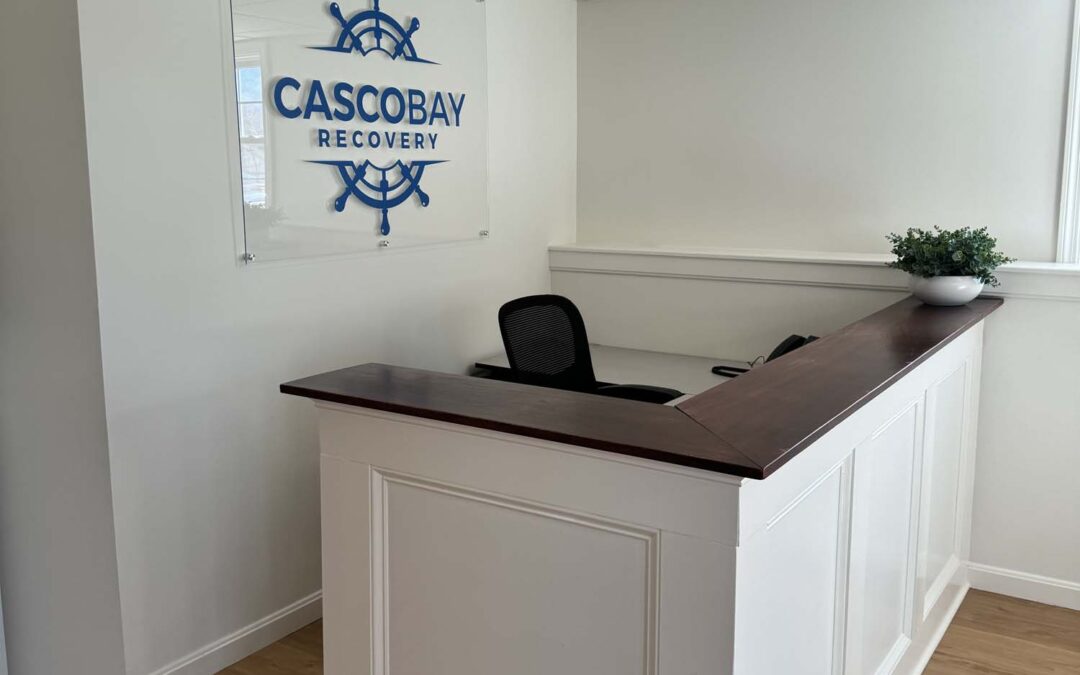What Is Dual Diagnosis and Why Specialized Rehab Matters
Dual diagnosis refers to the simultaneous presence of a substance use disorder (SUD) and a mental health disorder. When you’re struggling with both conditions at once, they create a complex interplay that requires specialized attention. You can’t effectively treat one without addressing the other—they’re deeply interconnected.
The mental health conditions that most commonly co-occur with substance use disorders include:
- Anxiety disorders that drive self-medication through drugs or alcohol
- Depression that creates a cycle of substance abuse and worsening mood
- Post-traumatic stress disorder (PTSD) where substances become a coping mechanism for trauma
- Bipolar disorder with its extreme mood swings often masked by substance use
- ADHD leading to impulsive substance use patterns
- Schizophrenia complicated by attempts to manage symptoms through self-medication
Integrated treatment for co-occurring disorders is essential because it addresses both conditions simultaneously rather than treating them as separate issues. This approach dramatically improves your chances of long-term recovery. When you receive dual diagnosis rehab that targets both your mental health and addiction together, you’re building a foundation for sustainable healing.
The risks of leaving dual diagnosis untreated are severe. You’ll likely experience worsening symptoms in both areas, higher relapse rates, increased hospitalization, and a diminished quality of life. Without proper intervention, each condition feeds the other, creating a downward spiral that becomes increasingly difficult to escape.
Recognizing the Signs That Indicate You Need Dual Diagnosis Treatment
Understanding the signs you need dual diagnosis treatment requires recognizing patterns that go beyond typical substance use or mental health struggles alone. You might notice these indicators manifesting in ways that disrupt your daily life and relationships.
Mental Health Symptoms
Mental health symptoms often appear as:
- Persistent mood swings that seem unrelated to external circumstances
- Social withdrawal from friends, family, and activities you once enjoyed
- Concentration issues affecting work performance or decision-making abilities
- Sleep and appetite changes ranging from insomnia to oversleeping, or loss of appetite to overeating
- Suicidal thoughts or feelings of hopelessness that intensify over time
Symptoms of Substance Use Disorder (SUD)
Symptoms of SUD typically include:
- Neglecting responsibilities at work, school, or home due to substance use
- Engaging in risky behaviors while under the influence or to obtain substances
- Tolerance increase requiring more of the substance to achieve the same effect
- Withdrawal symptoms when attempting to cut back or stop using
The challenge with co-occurring disorders lies in how these symptoms overlap and mask each other. For instance, you might use substances to self-medicate anxiety, which then worsens your depression. This scenario is not uncommon as per NIMH’s findings, where such interrelation between substance use and mental health is frequently observed. Your loved ones may struggle to distinguish whether behavioral changes stem from mental illness or addiction. This complexity creates a cycle where treating only one condition leaves the other to sabotage your recovery efforts, making specialized dual diagnosis care essential for breaking free.
Key Features to Look for in a Dual Diagnosis Treatment Program
When searching for dual diagnosis programs near me, you need to evaluate specific characteristics that separate effective facilities from those offering standard addiction treatment. Understanding what makes a good dual diagnosis center helps you make an informed decision about your care.
1. Comprehensive Clinical Assessment
The foundation of effective dual diagnosis treatment starts with a thorough evaluation process. You want a program that conducts extensive psychiatric and addiction assessments simultaneously, using validated screening tools to identify all co-occurring conditions. This initial assessment should involve multiple sessions with qualified clinicians who can distinguish between substance-induced symptoms and independent mental health disorders.
2. Integrated Treatment Plans
An integrated care approach means your treatment team addresses both conditions in tandem rather than treating them separately. Look for programs that offer:
- Medical detoxification with psychiatric monitoring
- Evidence-based behavioral therapies like Cognitive Behavioral Therapy (CBT) and Dialectical Behavior Therapy (DBT)
- Medication management supervised by psychiatrists experienced in dual diagnosis
- Individual and group counseling sessions
- Psychoeducation about the relationship between your mental health and substance use
3. Family Involvement and Coping Skills Development
Quality programs recognize that recovery extends beyond individual therapy. You should find facilities that provide family education sessions, teach practical coping mechanisms for managing triggers, and offer relapse prevention training specific to co-occurring disorders.
4. Flexible Treatment Settings
Your needs determine whether inpatient or outpatient care suits you best. The right program offers both options with clear criteria for each level of care.
Finding the right dual diagnosis treatment program requires strategic research and careful evaluation. You need to identify facilities that treat co-occurring disorders as interconnected conditions rather than addressing substance use and mental health separately. This integrated approach makes the difference between temporary relief and lasting recovery.
Start your search by examining these critical factors:
1. Specialized Focus on Co-Occurring Disorders
Look for rehab centers that explicitly advertise dual diagnosis treatment services in Maine. Generic addiction treatment centers may not have the expertise to handle complex mental health conditions alongside substance use disorders. You want facilities where dual diagnosis rehab is the primary focus, not an afterthought.
2. Staff Credentials and Experience
Verify that the treatment team includes licensed professionals trained in integrated care models. Ask about the qualifications of psychiatrists, psychologists, addiction counselors, and therapists. The staff should have documented experience treating conditions like depression, PTSD, bipolar disorder, and anxiety alongside addiction.
3. Multidisciplinary Treatment Teams
Quality dual diagnosis programs employ collaborative teams that communicate regularly about your progress. These teams typically include psychiatrists who manage medications, therapists who provide behavioral interventions, and addiction specialists who understand substance use patterns. It’s also worth noting how multidisciplinary teams play a crucial role in providing comprehensive care, ensuring all aspects of a patient’s health are addressed.
4. Treatment Plan Customization
Request information about how facilities develop individualized treatment plans. Cookie-cutter approaches rarely work for dual diagnosis. You need a program that adapts to your specific combination of mental health and substance use challenges.
5. Location and Program Format
Consider whether inpatient or outpatient treatment fits your current situation. Proximity to home matters for family involvement and long-term aftercare planning.
If you’re specifically looking for an addiction treatment program in Portland, Maine, particularly one that addresses trauma alongside substance abuse, Casco Bay Recovery offers specialized services tailored to such needs.
Exploring Different Dual Diagnosis Recovery Options Available
When you’re evaluating dual diagnosis recovery options, you’ll encounter several evidence-based approaches that address both conditions simultaneously. Understanding these treatment modalities helps you make informed decisions about your care.
Behavioral Therapy for Co-Occurring Disorders
Cognitive Behavioral Therapy (CBT) and Dialectical Behavior Therapy (DBT) stand out as particularly effective interventions. CBT helps you identify and change negative thought patterns that fuel both substance use and mental health symptoms. You’ll learn to recognize triggers, develop healthier coping mechanisms, and challenge distorted thinking that contributes to your struggles. DBT builds on these skills by adding emotional regulation techniques, mindfulness practices, and distress tolerance strategies—especially valuable if you experience intense mood fluctuations or self-destructive behaviors.
Medication-Assisted Treatment (MAT)
Medication management plays a critical role when psychiatric symptoms require stabilization. You might receive antidepressants, mood stabilizers, or anti-anxiety medications alongside medications that reduce cravings or ease withdrawal symptoms. This dual approach addresses the biological components of both conditions, creating a foundation for therapeutic work.
Peer Support Networks
Support groups specifically designed for co-occurring disorders provide a unique recovery element. You’ll connect with others who understand the complexity of managing both substance use and mental health challenges. These groups reinforce relapse prevention strategies while reducing the isolation that often accompanies dual diagnosis.
Insurance Coverage and Financial Considerations When Choosing Dual Diagnosis Rehab
Insurance coverage for dual diagnosis treatment can significantly impact your access to specialized care. Each facility maintains different relationships with insurance providers, and coverage details vary widely between plans. You need to contact your insurance company directly to understand what percentage of treatment costs they’ll cover, whether pre-authorization is required, and if your chosen facility is in-network.
Many sliding scale payment options Maine rehab centers provide make treatment accessible regardless of your financial situation. These flexible payment structures adjust costs based on your income level and ability to pay. Some facilities accept Medicaid, which covers dual diagnosis treatment for eligible individuals. Private pay options with payment plans allow you to spread costs over time rather than requiring full payment upfront.
You should have honest conversations with admissions counselors about your financial situation before committing to treatment. We believe in complete transparency about costs, insurance verification, and available payment options. Our admissions team at Casco Bay Recovery will work with you to:
- Verify your insurance benefits and explain your coverage
- Discuss out-of-pocket expenses you can expect
- Explore payment plans that fit your budget
- Identify alternative funding sources if needed
Don’t let financial concerns prevent you from seeking dual diagnosis treatment. The cost of untreated co-occurring disorders—including lost productivity, legal issues, and health complications—far exceeds the investment in comprehensive care.
Why Choose Casco Bay Recovery for Your Dual Diagnosis Treatment Needs?
We understand that treating co-occurring disorders can be complex. That’s why we’ve designed our approach to focus on integrated care. Our dual diagnosis rehab program brings together a team of experts including psychiatrists, addiction specialists, and licensed therapists who work together to create a personalized treatment plan just for you.
Comprehensive Treatment Options
At Casco Bay Recovery, we believe in providing comprehensive treatment options that address both mental health and substance use disorders. With our dual diagnosis program, you can expect:
- Evidence-based therapies such as Cognitive Behavioral Therapy (CBT) and Dialectical Behavior Therapy (DBT)
- Medication management when necessary
- Individualized treatment plans tailored to your specific needs
Insurance Acceptance and Support
We understand that navigating insurance coverage can be challenging. That’s why we accept most major insurance plans and have a dedicated team who will work with you to understand your coverage before you start treatment. We want to ensure that financial concerns don’t get in the way of your recovery.
Ready to start your recovery journey? Our admissions team is available 24/7 to answer your questions about our dual diagnosis program and verify your insurance benefits. Call us today to take the first step toward lasting healing.
FAQs (Frequently Asked Questions)
What is dual diagnosis and why is specialized rehab important?
Dual diagnosis refers to the simultaneous presence of a substance use disorder (SUD) and a mental health disorder such as anxiety, depression, PTSD, bipolar disorder, ADHD, or schizophrenia. Specialized rehab that offers integrated treatment addressing both conditions together is crucial to improve recovery outcomes and reduce risks like worsening symptoms and relapse.
What are the signs that indicate I need dual diagnosis treatment?
Signs include mental health indicators such as mood swings, social withdrawal, concentration issues, changes in sleep or appetite, and suicidal thoughts. Substance use disorder signs include neglecting responsibilities, engaging in risky behaviors, increased tolerance, and withdrawal symptoms. Overlapping symptoms can complicate diagnosis, highlighting the need for specialized dual diagnosis care.
What key features should I look for in a dual diagnosis treatment program?
A quality dual diagnosis center offers comprehensive assessments to accurately identify both SUD and mental health disorders. Integrated treatment plans combine medical detoxification, behavioral therapies like CBT and DBT, medication management, counseling, coping skills education, family involvement, and provide both inpatient and outpatient options tailored to individual needs.
How can I find a rehab that specializes in dual diagnosis in Maine or elsewhere?
Look for rehab centers focusing specifically on co-occurring disorders rather than separate treatments for SUD or mental illness alone. Verify staff credentials with experience in integrated dual diagnosis care models. Inquire about individualized treatment plans with multidisciplinary teams including psychiatrists and addiction specialists. Consider location convenience and program flexibility such as inpatient versus outpatient options.
What recovery options are available for individuals with dual diagnosis?
Effective dual diagnosis recovery options include behavioral therapies like Cognitive Behavioral Therapy (CBT) and Dialectical Behavior Therapy (DBT) that target substance use triggers and mental health symptoms simultaneously. Medication-assisted treatment (MAT) may be used to stabilize psychiatric conditions alongside addiction treatment. Support groups tailored for co-occurring disorders also provide valuable peer support and relapse prevention strategies.
How does insurance coverage work for dual diagnosis rehab programs?
Insurance acceptance varies by facility; it’s important to confirm coverage specifics before admission. Some programs offer sliding scale fees or accept Medicaid to increase accessibility. Transparent financial discussions with admissions counselors at potential rehabs like Casco Bay Recovery ensure you understand costs and payment options related to your dual diagnosis treatment.








